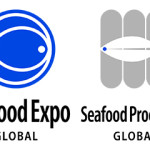A new Bloomberg Businessweek investigation has shed light on a process that is allowing Chinese shrimp producers to sneak antibiotic-tainted products into the United States via transshipment.
Through the use of forged records and lax oversight in China, the United States, and third-party, pass-through countries, Chinese companies have managed to import tens of millions of dollars of shrimp into the United States, the article claims.
The article details the business workings of a large Chinese company that typifies the process being used to bring Chinese shrimp into the U.S. under the guise of being a product of Malaysia. Through a lawsuit filed in Texas against its U.S. subsidiary American Fisheries, China’s Shanghai Fisheries was found to have shipped shrimp labeled as “Product of Malaysia” that tested positive for an antibiotic that was banned in the U.S. U.S. authorities then discovered that the shrimp was actually from China, not Malaysia.
In April, following several similar discoveries, the U.S. Food and Drug Administration issued an import alert allowing its district offices to detain and test shrimp and prawn imports from peninsular Malaysia. Malaysia Ministry of Health has also announced measures to combat the issue, including better regulating processing plants and taking over the authority to issue certificates of origin from chambers of commerce, which is accused of rubber stamping false certificates in the article.
The U.S. is now investigating other Chinese shrimp producers that are suspected of shipping seafood through Malaysia. But the Bloomberg article reports those companies fold and reincorporate “at the first sign of regulatory scrutiny.” Now that Malaysia has been flagged by U.S. Customs, these companies are now looking to import to the U.S. through other countries, particularly Ecuador, the article said, citing domestic shrimp producers.
The FDA’s import alert was “a huge step forward to prevent contaminated shrimp from getting to U.S. consumers,” said John Williams, executive director of the Southern Shrimp Alliance, in the article.
“[But] we have also seen significant shifts in trade patterns indicating new routes and methods for getting bad shrimp into the U.S. market,” he said. “As long as there are distributors, retailers, and restaurants that, provided that the price is low, do not know and do not care where their shrimp is coming from, we expect to see shrimp-trade fraud.”






